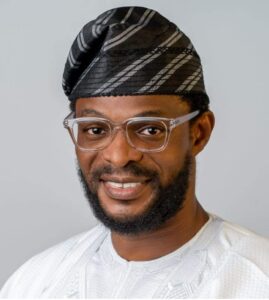The Lagos government is seeking a review of the power generation and distribution law in Nigeria.
Eko Hot Blog reports that the Lagos State Government has called for an urgent review of Nigeria’s power generation and distribution law under the purview of the Federal Government in view of the huge amount spent on diesel daily by industries, especially the manufacturing sector in the state.
EDITOR’S PICKS
Commissioner for Energy, Engr. Olalere Odusote made the call in his address at the closing ceremony of the Third Real Estate Market Place Conference and Exhibitions held recently in Victoria Island, Lagos.
Speaking on Sustainable Energy Solutions in Real Estate, the commissioner said that personal energy generated by individuals and corporate organisations, including real estate practitioners, usually comes with a huge financial burden in addition to its environmental pollution.
According to him, the country’s real estate sector is still in need of huge investment in the area of power to make the sector more viable and attractive to potential investors.
He explained that this became necessary as most private individuals and businesses in Lagos utilise diesel-powered generators rather than electricity from the national grid.
Odusote averred that the two distribution companies in Lagos State, Eko Disco and Ikeja Electric, established nine years ago, sell about 800 to 900 megawatts initially and have only improved to 800 to 1,000 megawatts nine years after.
“Nothing has changed in the national grid sector nine years after. However, Lagos State within a spate of nine years had grown from having about 8,000 megawatts of installed diesel capacity to about 23,000 megawatts,” the commissioner said.
“The diesel market of the off-grid market has grown by about 300 percent but the National grid market has not grown at all or just about one to two percent.”

He added that Lagos State injected almost 1,000 transformers into the grid to improve electricity supply to its residents, but without the desired result.
Odusote said a lot of the energy use in Lagos comes from diesel generators, and because of the high population of the city, the emission from that energy source had become unsustainable.
The commissioner revealed that Lagos had been projected to be a city with the largest population in the world in 50 years, therefore energy for the housing infrastructure needed for the population must be put into consideration.
Odusote said the state government came up with the Lagos Electricity Sector Policy, with the aim of providing universal access to electricity for all residents of the State.
He disclosed further that the draft of the Lagos electricity law had been completed and is now before the State’s House of Assembly for consideration.
Odusote explained that the bill, when implemented, would take regulation of electricity from the centre and domicile it with the Lagos regulatory agency.
“The Nigerian constitution domiciles the responsibility of regulation and distribution of electricity with the state government but when the law was passed in 2002, many states were not ready for the responsibility,” the energy commissioner said.
“Many housing estates in the state run on diesel generators because they are unable to benefit from the national grid, yet they cannot share from the excess capacity they currently have because the Federal Government does not permit it.
“Lagos is now ready, willing and in the process of passing the law. It means we will be able to locally determine our faith when it comes to electricity.”
He pointed out that the Lagos Regulatory Agency will work with the residents and the State Government to determine the need for the electricity market and make laws that will enable investors to invest in identified gaps.
FURTHER READING
Odusote added that the state is working with the Federal Government to ensure its laws were reviewed and the new law passed at the National Assembly aligned with the State’s law and in line with the development of the sector.
Click here to watch our video of the week:
Discover more from EkoHotBlog
Subscribe to get the latest posts to your email.
Advertise or Publish a Story on EkoHot Blog:
Kindly contact us at [email protected]. Breaking stories should be sent to the above email and substantiated with pictorial evidence.
Citizen journalists will receive a token as data incentive.
Call or Whatsapp: 0803 561 7233, 0703 414 5611

















